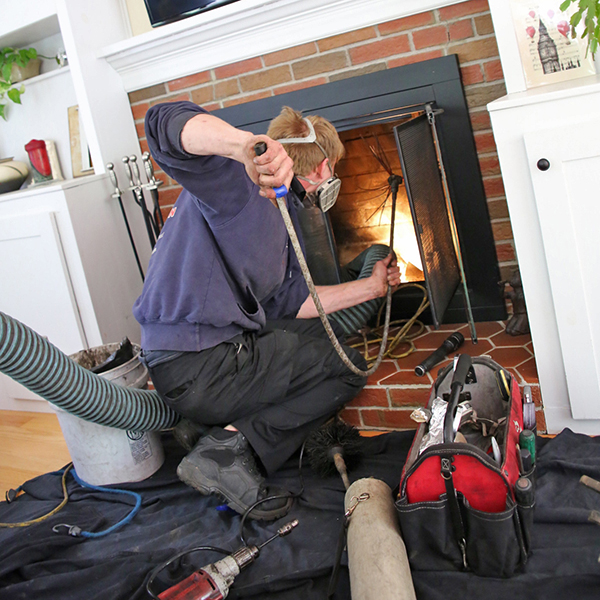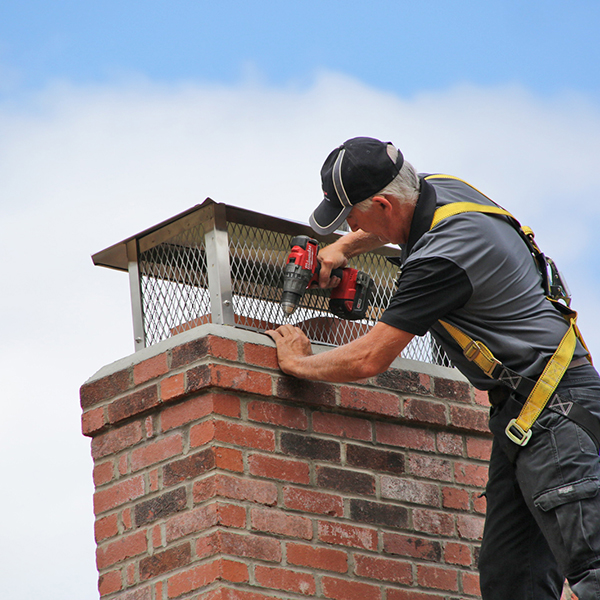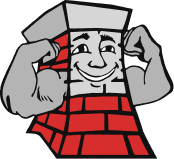Dangers of Neglecting Chimney Maintenance
 When you prepare to use your wood-burning fireplace, it is important to first think of safety. Your home and family can be in danger if chimney cleaning and other types of chimney maintenance are neglected. Chimneys usually look quite sturdy. What is rarely obvious to the untrained eye, however, is that dangerous conditions can exist.
When you prepare to use your wood-burning fireplace, it is important to first think of safety. Your home and family can be in danger if chimney cleaning and other types of chimney maintenance are neglected. Chimneys usually look quite sturdy. What is rarely obvious to the untrained eye, however, is that dangerous conditions can exist.
Dirty Chimney
Wood fires produce combustion gases that leave deposits of highly flammable creosote in the chimney flue.
Until chimney cleaning is performed by experts, the layers of creosote cause the following potential dangers and damages:
Obstruction
Chimney obstruction often occurs from layers of creosote in neglected chimneys. When there isn’t a proper draft, the toxic gases go into the home instead of outside through the chimney. It’s essential to have an operational carbon monoxide detector in the home when you use your fireplace because carbon monoxide fumes produced by wood fires are deadly. Carbon monoxide is frightening on several levels. The fumes are odorless, tasteless, symptomless, and invisible. Without a warning from an alarm, those who are exposed to the toxic fumes are usually unable to escape to safety.
Chimney Fire
There is an increased risk of a dangerous chimney fire when the chimney liner has caked-on creosote layers. The creosote being highly flammable, it is prone to catching fire from flaming embers. When layers of creosote continually feed a chimney fire, the resulting blaze will usually destroy the chimney liner and sometimes burns down the home, as well.
Corrosion
Combustion byproducts from wood fires are highly acidic, in addition to being toxic. Metal and masonry could corrode from the presence of creosote, especially when moisture is mixed with it. When a chimney liner becomes damaged to the smallest degree, the home becomes exposed to increased risks. First, the toxic gases could enter the home’s living space and endanger the occupants. Secondly, the excessively high temperatures inside the chimney flue could cause nearby combustible materials to ignite, creating a house fire that spreads quickly.
 Chimney Repair
Chimney Repair
Schedule annual chimney inspections, as the first step in chimney maintenance. Every leading fire safety organization agrees that annual inspections are crucial for purposes of safety. It is usually during an inspection that deterioration in a flue liner is discovered. Fireplaces should not be used until chimney liner damage is repaired or the liner is replaced.
Chimney sweeping is also usually needed at least annually. It’s safe to go by the gauge of having chimney cleaning scheduled when there is a 1/8”-thick layer of creosote in the flue, according to the Chimney Safety Institute of America (CSIA). Heavily used wood fireplaces usually need to be cleaned at least twice per year.
The third step in chimney maintenance is to schedule any needed repairs. Chimney exteriors are susceptible to moisture damage, especially when built with brick masonry, which is highly porous and absorbent like a sponge. Common types of chimney repairs are chimney crown repair or rebuild, masonry rebuilds, flashing repair, tuckpointing, and chimney cap installation.
Enjoy greater peace of mind by scheduling your chimney inspection, chimney cleaning, and chimney repairs with the chimney sweep experts at Northeastern Chimney LLC. Call us today at 860-233-5770.


